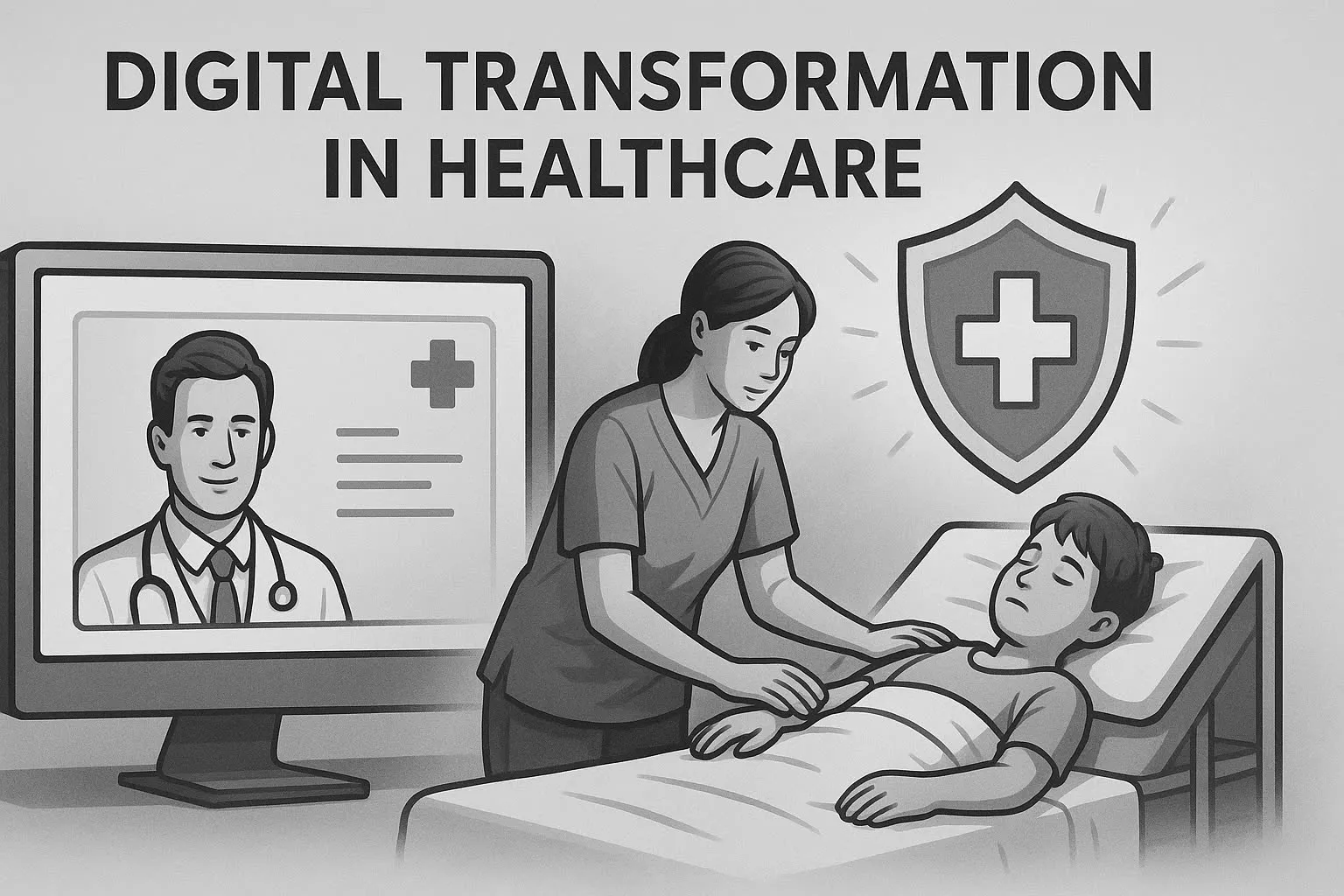Creating a fairer healthcare through digital transformation
Welcome to The Hanoi Times' Words on the Street column. Today, we want to share our view about the digital transformation in the health sector, which is expected to boost the quality of treatment for all people.
THE HANOI TIMES ─ Technology makes life easier, especially when it can help healthcare workers avoid the quandary of whether or not to save a patient when they are unsure of their ability to pay the hospital bill.

Digital transformation is improving medical services, but applying digital systems in ways that truly benefit patients remains a challenge. Incomplete and inconsistent digitization has left many patients struggling to access timely and effective care.
A recent case in the northern province of Nam Dinh made the news.
A four-year-old boy was brought to the hospital after a traffic accident. The situation should have been urgent, but the person accompanying him could not pay the deposit.
As a result, the child had to wait nearly an hour for his parents to arrive to complete the paperwork.
The case sparked public outrage. Several of the medical personnel involved were suspended.
But beyond the emotional reaction, this case highlights a deeper issue: the lack of a digital system to manage patient information quickly and efficiently.
If the hospitals had access to a digital database linked to national ID numbers, they could have instantly retrieved the boy's insurance, guardian details, and medical history. Emergency care could have begun immediately, and payment could have been processed later.
Many countries have already built systems that store a citizen's basic information. Identity, health records, financial status, and emergency contacts are digitalized and accessible. Healthcare workers can use this information to act quickly, especially in emergencies.
The Ministry of Health has set a goal that every citizen should have an electronic health record. Hospitals should phase out paper-based documents and adopt digital tools to manage medical records, billing, and patient care.
Steps have already been taken in many provinces. Electronic medical records are being used. Some hospitals now process lab results and medical images digitally. Cashless payments are also being introduced.
Companies like VNPT are providing hospital information systems (HIS), telemedicine platforms (Telehealth), and image archiving systems (PACS).
These efforts are helping to modernize healthcare. But more needs to be done.
Digital systems do more than just speed up work. They make healthcare more transparent and accountable.
Every action is logged, and every step in a patient's care becomes part of a traceable record. This reduces confusion, miscommunication, and finger-pointing. When things go wrong, it's easier to find out why.
Doctors benefit too. Access to a patient's complete medical history, including allergies, previous illnesses, and blood type, can be life-saving, especially in urgent cases. Doctors can also avoid giving the wrong medication or repeating tests.
Lower-level medical facilities can send patient records directly to tertiary hospitals. This prevents delays and reduces costs. Patients don't have to carry paperwork or wait in long lines. Test results can be sent via mobile apps, and appointments can be scheduled online.
Digital data also helps government agencies monitor hospital performance, reducing the risk of corruption or errors. More importantly, digitization will make it easier to treat foreign patients admitted to Vietnamese hospitals.
Despite these advantages, Vietnam still faces several challenges in becoming fully digital.
The first is infrastructure. Many hospitals, especially in rural areas, still use outdated equipment and unreliable internet. Without strong technical support, digital tools cannot function properly.
The second is human resources. Not all doctors and nurses are comfortable using new systems. Regular training must be provided to help medical staff adjust to digital workflows.
Third, privacy and data security. Medical data is sensitive. There must be clear rules about who can access it and how it can be shared. Laws must protect patients while allowing healthcare systems to function efficiently.
Finally, cross-departmental integration is essential. Healthcare data must be linked to insurance, civil registration, and population databases. Only then can systems function smoothly and provide real-time information when needed.
From slogan to reality
The Nam Dinh case shows that it is not enough to rely on the ethics or kindness of individual doctors. Health care must be based on systems that ensure fairness, speed, and consistency.
Some have suggested creating emergency funds to help in similar situations, but this is only a short-term solution. The real answer is to build a modern digital system that works for everyone.
Local governments should make the digitization of healthcare a top priority, even at the grassroots level. People in remote areas should not be left behind. In many emergencies, people do not have time to collect paperwork or wait for relatives to arrive.
Speaking at the 32nd International Medical and Pharmaceutical Exhibition in Hanoi on May 8, Deputy Minister of Health Nguyen Thi Lien Huong said the ministry is preparing a groundbreaking policy that is to eventually provide basic health services free of charge. This is a bold and humane vision, one that will only succeed if the healthcare system is efficient and transparent.
Digital transformation is not about replacing people with machines. It's about helping people work more clearly, fairly, and responsibly.
Every medical emergency is a warning. Every minute of delay can cost a life. The healthcare system cannot run on good intentions alone. It needs a solid structure that ensures timely and reliable care for all.
If taken seriously and deployed widely, digital transformation will be the backbone of a healthcare system where everyone is treated with dignity, transparency, and safety.












